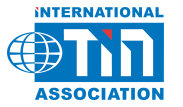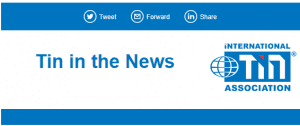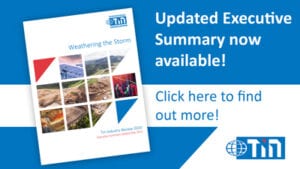With one exception, Indonesian tin producers have halted sales since 28 August in response to the fall in LME prices to below US$21,000/tonne. After ten market days with no trading, fresh sales of tin were made on the Indonesia Commodity and Derivatives Exchange (ICDX) for the first and only time this month on 11 September. Last Thursday 30 lots (150 tonnes) of tin was sold through the market and a further 200 lots (1,000 tonnes) was sold in an off-market “bonafide” deal.
“It’s a semi-moratorium,” ICDX Commissioner Fenny Widjaja told Bloomberg. Smelter members on the ICDX were offering metal at $500 to $600 a tonne above the contract on the London Metal Exchange. “Smelters don’t want to sell cheap because ore prices are very high,” he said. “Smelters prefer to build up stockpiles with the current low price, on expectations that it will rise to a decent level, probably at $23,000.” The weak trade on the ICDX was purely because of the price, Jabin Sufianto, chairman of Association of Indonesian Tin Exporters said. The association groups 18 smelters of the 22 that trade through the exchange.
ITRI view: Monthly turnover on ICDX peaked this year at 7,810 tonnes in May, since when it has been below 5,000 tonnes every month. However tin has also been exported in large volumes in the form of non-ingot products such as billets, tube and solder wire. Controls on non-ingot sales are due to be tightened considerably from 1 November under a recently revised export regulation, which could potentially result in high levels of sales of these products in September-October.


